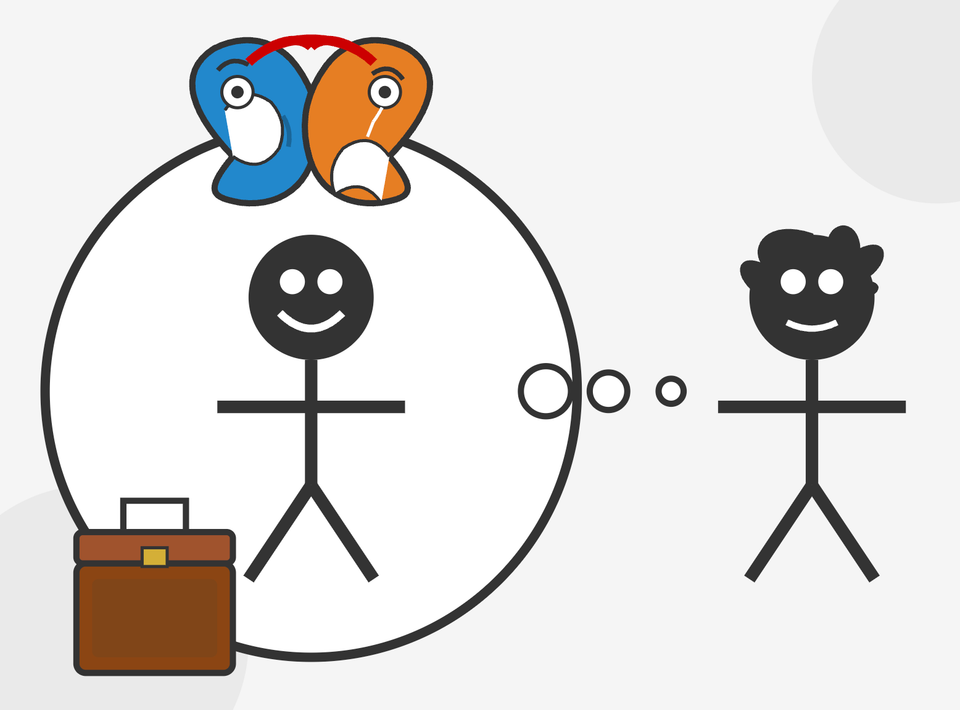Fake EEAT is Out: New QRG Update

TL;DR: To impress a Quality Rater, hire good writers with experience in the subject that you want them to write about, and give them the time and resources for research. Every time-saving shortcut, AI “agent”, or cut corner just makes it less likely you’ll rank.
Google has just updated its Quality Rater’s Guidelines with more detail on the topic of “fake EEAT”.
This comes about a month after Brighton SEO hosted a main stage talk about faking author bios to help with rankings (which didn’t go down well with everyone).
Updates to the QRG don't feed into ranking algorithms immediately. But these human reviewers build the rules that updates are based on, so it's worth paying attention now to build a future-proof site ahead of the next core update.
Signs of Fake EEAT
The QRG now says that Quality Raters should look for a couple of specific signs of fake EEAT in web content.
1. Fake “evidence” of real-world expertise
In short, you can't "prove" expertise by running your content through ChatGPT to add first-person pronouns.
A webpage with deliberately inaccurate information to promote products in order to make money from clicks on monetized links. Examples include a product recommendation page on a website falsely impersonating a celebrity blog, or a product recommendation based on a false claim of personal, independent testing when no such testing was conducted.
In my experience, fake testing is a problem when content teams are under-resourced and set unrealistic targets.
When it comes to actually knowing what you're talking about, there is no shortcut.
There are many content issues you can prompt your way around, but this just isn't one of them.
Eventually, I believe real-world testing (supported by evidence) will be the dividing line between guides that rank and ones that don't.
2. Fake author credentials
This part of the update looks like it's designed to tackle fake authors with fictional bios, AI-generated profile pictures, and so on.
However, I wanted to pull out this quote specifically because it's the furthest Google has gone in calling out fake author experience.
The QRG now says Raters should look for:
Factually inaccurate and deceptive information about creator expertise. For example, an author or creator profile inaccurately claims to have credentials or expertise (e.g. the content creator claims falsely to be a medical professional) to make the content appear more trustworthy than it is.
This speaks to a wider misunderstanding about why sites rushed to add author bios to content last year.
- Author bios are not a ranking factor. They won't support rankings directly. They're supposed to help you to build trust.
- In the UK, 73% of adults have been targeted by scams. People are wising up to the risks; they want to know you're legit before signing up for your subscription.
- Your goal should be to build a relationship. The bios on your site support conversions by giving your content authenticity.
Aside from that, I also want to highlight that “fake EEAT” doesn’t just mean pretending to have more qualifications than you actually have.
There should never be any mismatch between author credentials and actual experience. The whole point of your bio is to showcase what you know, not what you think people want you to know.
And it's easy for Quality Raters to find mismatched credentials. Your actual lived experience is all over your social media profiles.
Let's imagine a CEO lays off their entire content team, replaces them with ChatGPT, then claims to be a “content writer” in their bio to build so-called authenticity and trust.
You don’t get better rankings by claiming to be "a writer", and you don't get better rankings by removing "freelance writer" from your bio. Messing with things like that just shows you're not clear on the purpose of the content you produce.
There Are No Shortcuts
My view is the same as it was a year ago.
If you're taking any kind of shortcut when creating content, it will come back to bite you.
There are no corners worth cutting. In my experience, the sites that are investing in content are the ones that are succeeding.
It's not cheap, fast, or easy, but great content still works if you want to spend the money on it.
And you can dismiss the QRG if you like, but if this wasn't an important document, experts wouldn't have dedicated time to writing entire books about it.
Google is now too bloated and slow to deal with deceptive practices quickly. But this update to the QRG suggests that it's moving in the right direction.
Original article here from SEJ:

And here's the QRG in full (still dated January 2025, but the update is recent).


Comments ()